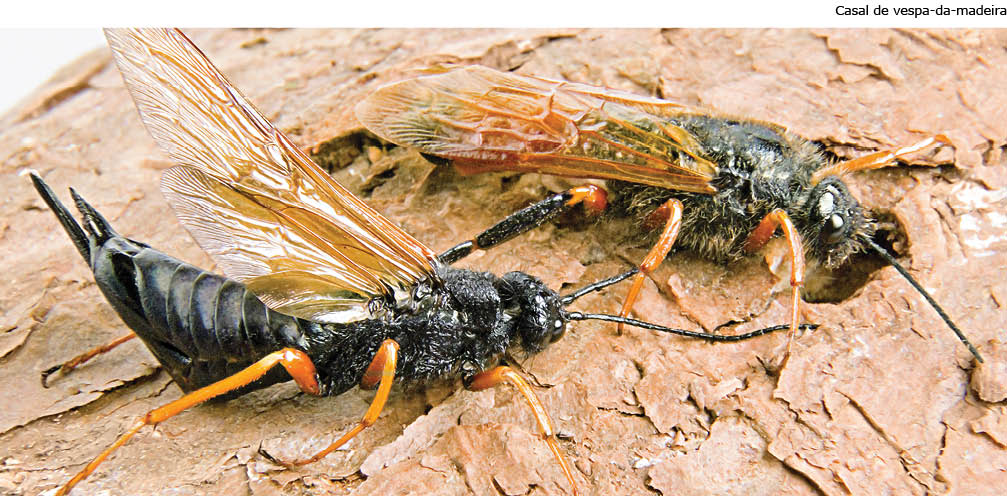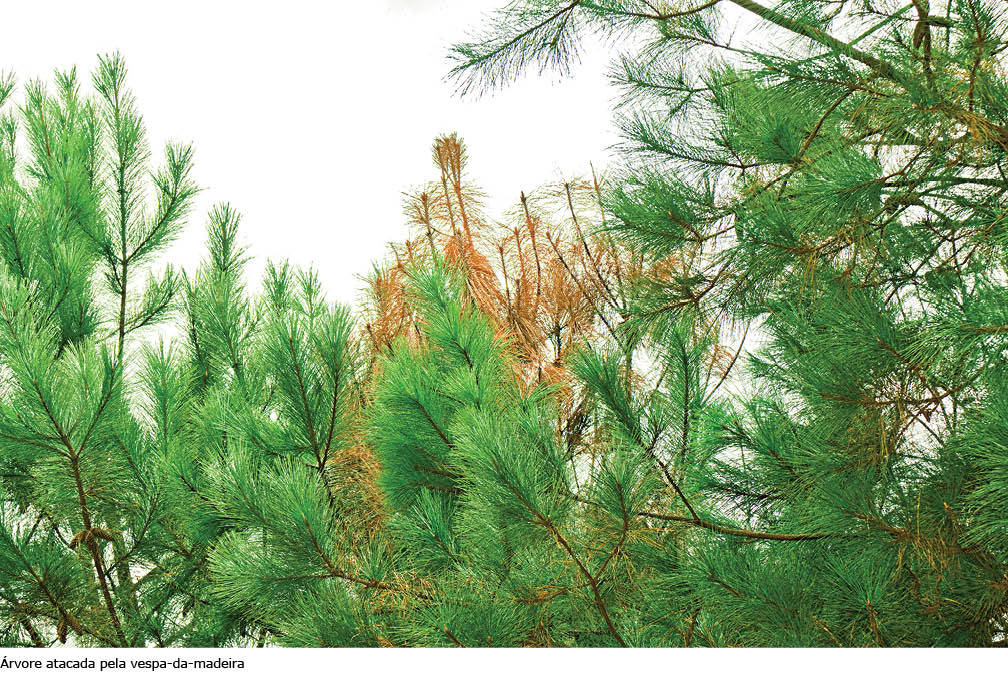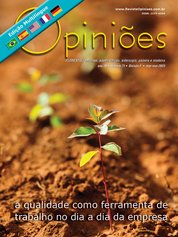Susete do Rocio C. Penteado, Marta de Fátima Vencato e Leticia Andréia Nichele
A primeira, Pesquisadora e as duas seguintes, Analistas da Embrapa Florestas
OpCP71
Gestão da qualidade no controle da vespa-da-madeira
Com base nos dados de 2021, publicados no Relatório da Ibá, os plantios de pínus no Brasil totalizam 1,93 milhão ha, sendo que cerca de 88,9% se concentram na região Sul, com o Paraná e Santa Catarina como os principais estados produtores. A madeira é utilizada para a produção de múltiplos produtos de mercado, incluindo celulose e papel de fibra longa, de painéis reconstituídos de madeira e, principalmente, da indústria de madeira sólida (serrarias e laminadoras).
A vespa-da-madeira (Sirex noctilio) é a principal praga dos plantios de pínus no Brasil. Originária da Europa, da Ásia e do norte da África, foi registrada pela primeira vez no País, em 1988, trazendo muita preocupação ao setor florestal dependente dessa matéria-prima. O grande problema associado a essa praga é que ela ataca árvores vivas e adultas – geralmente a partir do 7º ano –, levando-as à morte, o que pode ocorrer alguns meses após o ataque. Além disso, ela é atraída para árvores estressadas e tem uma alta capacidade reprodutiva.
Devido aos danos provocados por essa praga e à urgência em realizar o seu controle, em 1989, foi criado o Programa Nacional de Controle à Vespa-da-madeira (PNCVM) e também o Fundo Nacional de Controle de Pragas Florestais (Funcema), o qual dá suporte financeiro ao PNCVM. Esse programa prevê a execução de medidas de prevenção, principalmente pela realização de desbastes; monitoramento da presença e dos níveis de ataque da praga; controle biológico, pelo uso de inimigos naturais; e transferência de tecnologia, visando, principalmente, à capacitação de profissionais do setor florestal.

A principal medida de controle da vespa-da-madeira é o uso de um nematoide, Deladenus siricidicola, o qual esteriliza as fêmeas do inseto e é específico para essa praga, o que traz segurança em sua utilização. Ele foi introduzido do CSIRO, da Austrália, e é produzido massivamente no Laboratório de Entomologia Florestal da Embrapa Florestas desde 1990, sendo distribuído aos produtores de pínus que têm a praga em seus plantios.
Embora o nematoide já se tenha consagrado como um produto com eficiência comprovada no controle da vespa-da-madeira, sentiu-se a necessidade de padronização dos processos internos envolvidos em sua produção.
Sendo assim, a Embrapa Florestas implantou o Sistema de Gestão da Qualidade, objetivando a confiabilidade e a rastreabilidade, proporcionando a melhoria contínua de seus processos. Dessa forma, todo o processo de Criação Massal do Nematoide foi descrito em “Procedimentos Operacionais Padrão (POPs)”, a fim de que as atividades sejam executadas com um padrão de qualidade definido, visando à obtenção de um produto seguro e eficiente. Além disso, foram estabelecidos formulários para o registro dos dados da produção do nematoide.
O processo, desde a produção das doses do nematoide até o recebimento do produto pelo consumidor final, foi modificado e padronizado, gerando a possibilidade de rastreabilidade em todas as fases de execução. Auditorias internas são realizadas anualmente com o objetivo de verificar o cumprimento dos requisitos estabelecidos em norma própria.
As ações realizadas pela Embrapa Florestas também viabilizaram o registro do produto, denominado Nematec, junto ao MAPA, Ministério da Agricultura, Pecuária e Abastecimento, tendo sido também obtido o registro de marca e identidade junto ao INPI, Instituto Nacional de Propriedade Intelectual, bem como o Licenciamento Ambiental para uso do produto nos estados do Paraná (Adapar), Santa Catarina (Cidasc) e Rio Grande do Sul (Fepam).
Atualmente, a parceria da Embrapa Florestas com o Funcema congrega cerca de 120 empresas florestais ligadas à cadeia produtiva do pínus, para as quais são enviadas, em média, 8 mil doses anuais do produto para utilização nos plantios atacados. Também, para garantir a eficiência do produto no controle da praga, são realizados eventos de capacitação visando à qualidade do processo de utilização do Nematec nos plantios de pínus, destinados a produtores, técnicos de empresas florestais e prestadores de serviços.
É importante destacar que o prejuízo estimado pelo ataque da vespa-da-madeira no Brasil é de até US$ 53 milhões anuais, considerando também os custos da colheita, e de US$ 25 milhões anuais, quando considerada a madeira em pé. Entretanto, aliada a outras medidas previstas no PNCVM, a utilização do Nematec proporciona uma redução de perdas de menos 70% e mantém a praga sob controle.





